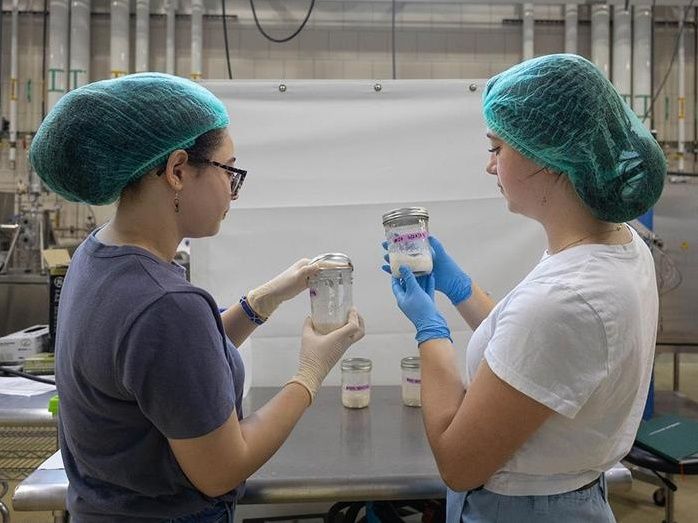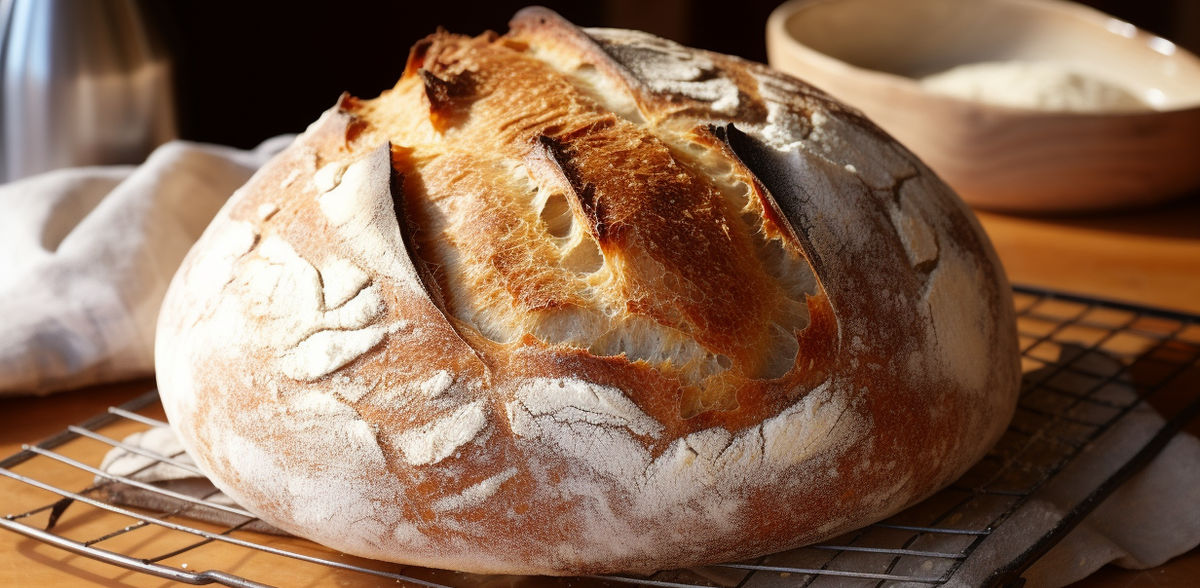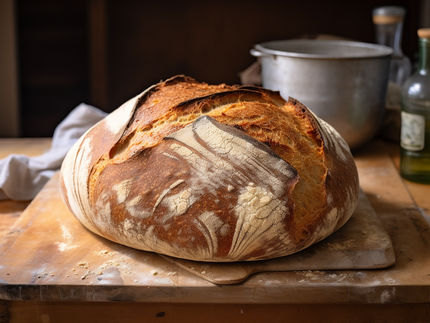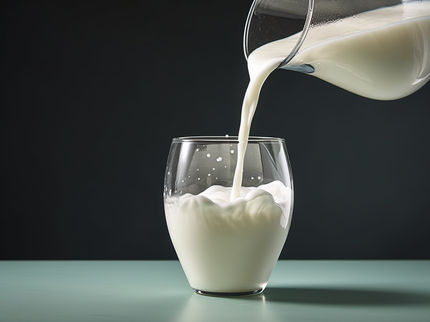Study of sourdough starter microbiomes to boost bread quality and safety
USDA grant to fund research that may benefit those with celiac disease
People with celiac disease, or intolerance to dietary gluten, may soon have more food options, thanks to an unlikely source: sourdough bread. Sourdough contains less gluten than other breads, making it more tolerable for people with gluten sensitivities. Now, Penn State and Colorado State University researchers are studying whether bacteria in the yeast starter needed to make sourdough bread might help reduce gluten in other bread products.

Maya Tanikawa-Brown, left, a Penn State Summer Research Opportunities Program scholar, and food science graduate student Ashley Ohstrom examine sourdough fermentations. They are assessing the activity of the sourdough cultures by observing dough rise and bubble formation. Each of these sourdoughs comprise a diverse array of fungi and bacteria species, contributing to the development of distinctive dough characteristics, such as appearance and smell, and ultimately, the creation of a unique sourdough bread.
Jillian Wesner/Penn State
Gluten is a protein naturally found in cereal grains such as wheat, barley and rye that can trigger an immune response in people with gluten intolerance and celiac disease. Gluten intolerances, characterized by adverse gastrointestinal symptoms upon consumption of gluten-containing food products, are estimated to affect approximately 7% of the U.S. population, according to the National Institutes of Health. Of this number, 1% suffer from celiac disease. Incidence of celiac disease has increased 7.5% per year over the last several decades, mirroring a continually increasing prevalence of all autoimmune disorders worldwide.
Funded by a $500,000 grant from the U.S. Department of Agriculture, co-principle investigators Josephine Wee, Penn State assistant professor of food science, and Charlene Van Buiten, Colorado State University assistant professor of food science and human nutrition, will not only investigate if sourdough starter microbiomes can detoxify gluten in bread products, making them safe for individuals with celiac disease, but also whether they can be selected and manipulated to boost bread quality and safety.
Conventional bread dough uses baker’s yeast in place of naturally present yeast and bacteria — known as sourdough fermentation, Wee explained. Sourdough bread is made by the fermentation of dough with wild Lactobacillaceae and yeast. Sourdough bread is leavened with “starter cultures,” or communities of naturally occurring bacteria and yeast that are portioned and maintained through a series of passages at room temperature. These communities are collectively known as the sourdough microbiome.
“A study of 500 sourdough starters collected from around the world showed that no two starters are exactly alike, and presently, little is known about the ability of sourdough microbiomes,” Wee said. “Outcomes from this work will use whole food microbiomes to develop fermentation technologies that will address the next generation of consumer demands for high-quality ‘clean label’ products with reduced gluten immunogenicity.”
Immunogenicity is the ability of cells or tissues to provoke an undesirable immune response. Clean label means making a product using as few ingredients as possible and making sure those ingredients are items that consumers recognize and think of as wholesome, or less processed — ingredients that consumers might use at home.
Bread production worldwide exceeds 100 million tons annually, valued at $201 billion, according to Custom Markets Insights. However, bread is also a major contributor to food waste due to spoilage or overproduction and changing consumer preferences, Wee pointed out. She added that current bread-manufacturing practices fall short in meeting demands, necessitating innovative approaches to improve quality and reduce waste.
“With combined expertise in food microbiology and nutritional biochemistry, our team is interested in characterizing the relationship between the sourdough microbiome, bread quality and gluten immunogenicity,” Wee said. “We hope the findings of this research will influence functional outcomes of bread quality and safety.”
Van Buiten is a Penn State alumna, graduating with a doctoral degree in food science in 2017.






























































